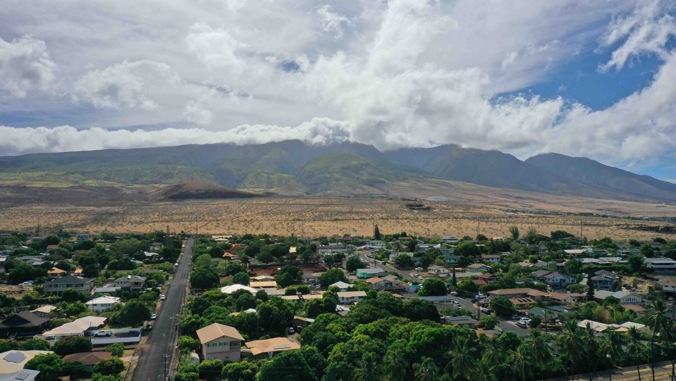
A new University of Hawaiʻi Economic Research Organization (UHERO) analysis reveals significant mental health, housing and financial challenges among Maui’s immigrant communities in the aftermath of the 2023 wildfires—while also spotlighting community driven solutions.
The blog published on May 16, draws on surveys of nearly 300 participants conducted by Roots Reborn, a multicultural immigrant justice and disaster response organization dedicated to supporting migrant and immigrant communities on Maui. Data shows that 46% of respondents report mild to severe depressive symptoms, and more than 1 in 4 experience moderate to severe anxiety—underscoring an urgent need for culturally responsive mental health services.
The wildfire’s impact on housing and income stability remains severe. More than half of respondents experienced homelessness, and nearly 60% have relocated three or more times since the disaster. Most reported working in informal, low-wage jobs with limited security, and more than 75% said their income either fails to meet or only partially covers basic needs.
Gaps in healthcare access were also stark: 17.4% of respondents remain uninsured—more than three times the Maui County average—with language barriers, legal fears and affordability cited as top obstacles.
“The data speak plainly: trauma persists, systems remain fragmented, and survival is still a daily challenge for many. Yet, within this adversity lies a roadmap for action,” according to the blog.
Despite challenges, the community’s resilience is evident. The data shows that community members are not just identifying unmet needs—they are actively seeking out culturally relevant, community based solutions. Surveyed individuals expressed strong demand for practical, culturally relevant services such as tax preparation, ITIN registration, group therapy and driver’s license test preparation.
Trust in local organizations—including the State of Hawaiʻi and Maui County—remains strong, in contrast to widespread distrust of FEMA, signaling the importance of trusted, community-rooted initiatives.
“Roots Reborn has a critical role to play—not only as a service provider, but as a trusted anchor for rebuilding lives with dignity, cultural humility and community voice at the center,” the blog said. “As Maui moves from emergency to long-term recovery, these findings must catalyze a deeper commitment—from funders, policymakers and partners alike—to build systems that are inclusive, equitable and rooted in the lived realities of those too often left out of disaster narratives.”
The full blog is available on UHERO’s website.
UHERO is housed in UH Mānoa’s College of Social Sciences.

